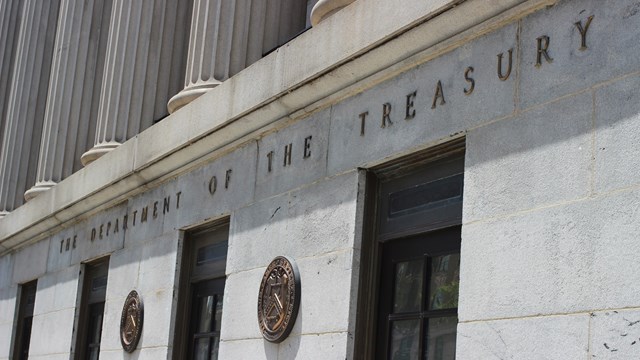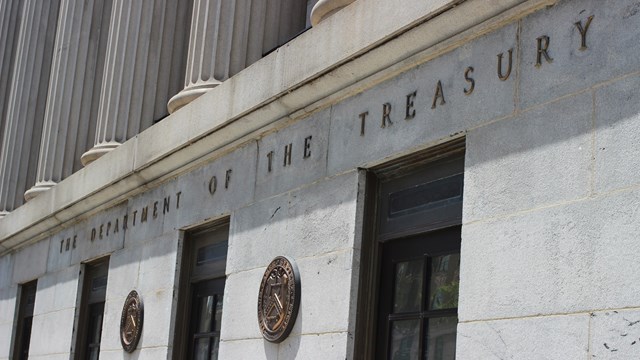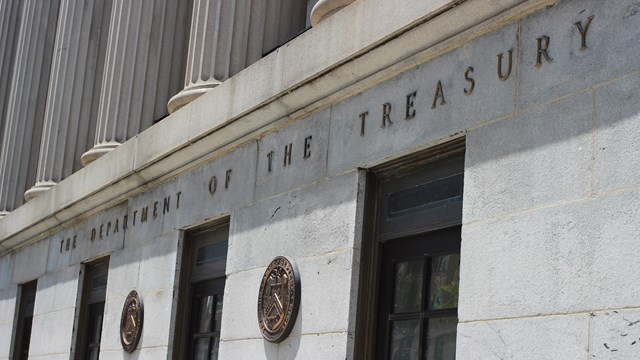
Remember that thick stack of documents you received when you bought your condo or co-op? If you're like most people, they're probably sitting in a drawer or in the back of your filing cabinet, communing with the dust bunnies, largely forgotten.
While quarantining all those densely-worded legal papers with the rest of the documents and slips that came along with buying the new place is tempting, it's time to excavate them and reacquaint yourself, because those files are the first and last word when it comes to how your building is governed. They map out the responsibilities and powers of the board, dictate how finances are to be handled, and codify the rules and regulations to which all residents must adhere.
Most people—even board members—don't read their building or HOA's governing documents unless they have a specific question to answer, and residents are notoriously unfamiliar with them. This ignorance is the basis for a lot of misunderstanding and confusion between building administrators and their residents—and the first step to preventing those sorts of problems is to learn what exactly the documents are and why you and your building community need them.
Different Beasts
The first thing owners must know is that there are differences in the documents between condominiums and co-ops. In a condominium (by far the more common of the two in New Jersey), each unit owner actually owns their apartment; it's their real property. So the documents that condo owners receive govern the common areas, such as the hallways, the elevators, the lobby, the parking facilities, and any other shared spaces throughout the building.
When you buy a condominium, you will receive a declaration of covenants, conditions and restrictions (CC & R’s) and bylaws. The declaration will be recorded with the recorder of deeds in your town and county, while the bylaws, which govern the operation of the board, will typically stay within the building.
Co-ops are a completely different animal, rather than owning real property you own an interest in the building, and while you have the right to occupy the space, you don’t actually own the space.
New Jersey does have its fair share of co-ops, but the majority of multifamily, non-rental housing units are condominiums—but if you happen to live in a co-op instead of the declaration you’ll receive what's known as a proprietary lease.
A co-op is a cooperative corporation which owns the land and all the apartments. Each co-op shareholder owns stock in the company that owns the building and the land, and they’re part owners of the co-op association.
The co-op association leases out each of the co-op apartments to the people who will be living there—who happen to be the same people who own the shares of the co-op. Co-op shareholdership feels a lot like outright ownership. You can will your unit to your heirs or designated beneficiaries, and you have the right to sell your apartment—as long as the building approves of the people purchasing it. Technically though, you’re leasing the unit from the corporation. The proprietary lease guarantees that the occupant of the apartment has the right to live in the apartment, but beyond that, the co-op board has a great deal of say in how the building is run and how units are managed.
Regardless of whether you reside in a condo or a co-op, real estate professionals and attorneys stress how important it is that all unit owners review these documents.
“My experience is that most people generally don't bother [to review these documents] until a specific question arises, and then they go look and see if they can find the answer,” says Dennis Estis, Esq., a partner with the firm of Greenbaum Rowe Smith & Davis, LLP in Iselin.
Signed, Sealed, Delivered
Whether you buy a co-op or a condo, the building is required to give you all the relevant documents as soon as you buy the apartment—and you can also request to look over the papers before you decide to purchase.
In fact, says Angela Falzone, a consultant with Illinois-based Association Advocates, Inc., a firm which offers consultation, management and advocacy services for residential board members and homeowners, it’s suggested that you and your real estate attorney look through all the documents before closing, so you can make sure your new home is a good investment, and doesn't come with any rules or policies that might be deal-breakers.
In addition to the declaration or proprietary lease and bylaws, those documents will include, but are not limited to: budgets, current financials, minutes of resident meetings within a certain time frame (generally two years), and the house rules and regulations for the building. In newly constructed condos, a property report is generally available for review as well.
“Understanding the rules and regulations of a condo building is so important,” says Falzone, “as things may be included in rules that were not dictated in the declaration and bylaws, such as non-smoking areas, limits on noise, areas restricted for walking dogs and other pet rules.”
People with very specific housing needs should take a very close look at those documents being on the lookout for potential deal-breakers.
One prime example of a bylaw that might be a deal-breaker would be rules relating to home-based businesses. If you work out of your home or have a home-based business, you’ll want to make sure there’s nothing that will restrict you from being able to run that business. The building may have rules limiting the number of deliveries you can receive; or the number of visitors that can come in and out on a daily basis. These rules may make working from home difficult or impossible in some professions.
Another area where the rules might be a deal-breaker would be if you plan on renting out your apartment—or even a room in your apartment—the pros agree that the legal documents should outline the rules for this. There are many buildings that don’t allow rentals at all, so if you plan to take on a tenant/roommate, or sublet your unit for six months of the year, you need to make sure it’s allowed before you make your purchase.
The documents would also show if you will need to protect yourself financially. In the documents, you’ll be able to see the building’s financial reserves. This is incredibly important, since low reserves could mean a special assessment in the near future should the roof need major repairs or the windows all be due for replacement.
Recent changes to FHA loan requirements also demand more disclosure and clarity when it comes to reserve funds—so the more information you have, the better your chances for meeting mortgage qualifications as well.
Keeping Current
While all these documents are very important and should be kept close track of, it's not the end of the world if yours got thrown out during your 2009 spring cleaning. You can always get replacement copies. The easiest way to obtain duplicates is to make a request in writing to your association management.
David Byrne, Esq., of the law offices of Stark & Stark in Lawrenceville, says, “Generally, an association will provide a hard copy of everything for a fee. Professionally managed associations often have the documents available online.”
If your documents are properly recorded, you can also get a copy of your condo declaration from your county recorder's office using the name and address of the property. A recorded document of this nature is a restriction on the title of the unit, and the recorded number of the document will show up in a title search.
Like everything else, a building or HOA’s documents should be revisited often, and altered as needed to keep up with the times and the demands of the residents. Some buildings and communities opt to disallow pets, but will allow existing pets to be grandfathered in under the new rule. A younger-trending building may want to revisit its rules about quiet hours. A newly-installed or updated amenity—such as a pool, for example—will require new regulations governing its use and upkeep.
According to Byrne, if the board decides to change its bylaws, they're usually required—by the community's bylaws themselves—to take a vote during an official meeting. The meeting can be a regularly scheduled gathering such as an annual residents' meeting, or a special meeting created expressly for the purpose of the vote. Residents are usually required to be alerted via a letter, posting or e-mail about the meeting a set number of days in advance, but typically, only the board members will actually vote on the change to the documents.
If the board decides to change its declaration, this is a more formal event, and the board would need to send a copy of the proposed amendment to all the residents, then hold a meeting to discuss and explain the changes and solicit approval from a majority of owners. It can be a very long process but industry professionals advise that this is the strongest and most permanent decision. Once you change the declaration the only way to undo that is to hold another vote and get the majority of the community to agree to undo it.
Amendments are the toughest ones and can take months to complete. The reason for this, according to Falzone, is that owners are often reluctant to approve and may need convincing, and politicking may be needed to get the amendment through. Indeed, it is not uncommon for some amendments to take more than a year.
If an incoming, newly-elected board discovers that their building’s governing documents are somehow incomplete, were poorly drawn-up to start with, or have been improperly altered or amended over the years, getting them up-to-date could still be a lengthy, expensive process.
That’s a rare and risky move, however. Informal operations where nothing is set in stone or put in writing can lead to nasty legal battles, so most attorneys recommend creating legitimate, written bylaws so there’s no question about anything should problems arise.
If a community's documents are missing or inconsistent with state or federal laws, the New Jersey Condominium Act will prevail. But it’s much easier simply to use the act to help boards draw up their own bylaws that work for the state, the board, the building and all the residents.
Before it comes to that however, it is recommended that condo boards hire the assistance of an experienced real estate attorney who understands the laws at the federal, state, and municipal level.
One thing is certain and that is these are extremely technical documents, and it is never recommended that a condo or a co-op board try to amend their documents without the assistance of legal counsel.
Danielle Braff is a freelance writer living in Chicago. Editorial Assistant David Chiu contributed to this article.






Leave a Comment